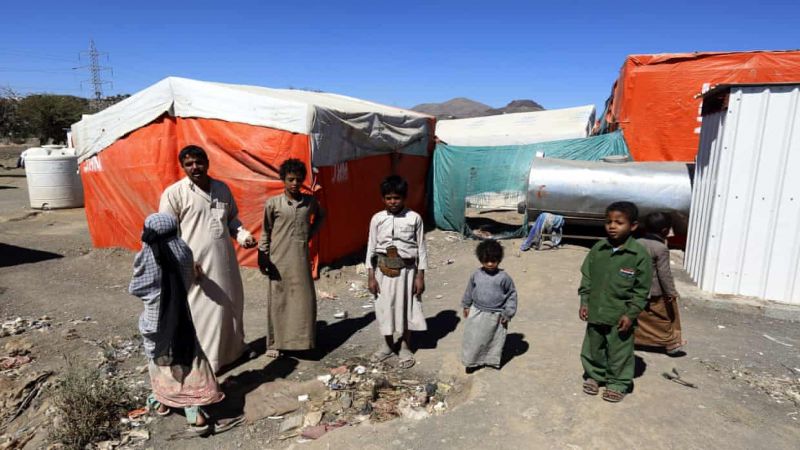
By Patrick Wintour
The UN’s increasingly fraught attempt to salvage a ceasefire in the Yemeni port of Hodeida that could lead to a wider peace across the war-torn country is to be shored up by extra money from the UK to support the civilian administration of the city.
The foreign secretary, Jeremy Hunt, announced an initial extra £2.5m funding on Tuesday amid signs that the UN special envoy for Yemen, Martin Griffiths, is struggling to gain agreement even on basic confidence-building measures such as prisoner swaps.
Griffiths flew to Yemen on Monday to assess the logjam, but privately UN officials admit the ceasefire might collapse within weeks unless the UN capacity improves and there is a significant change of heart on both sides.
The extra £2.5m UK funding will go to the UN’s civilian co-ordinator’s office that is due to provide all the civilian functions that sit alongside the military ceasefire monitoring. Its functions will include management of the main ports, de-mining operations in Hodeida city and port, and establishing a new civilian protection police.
Yemen’s civil war is largely a dispute between Houthi … revolutionaries and the resigned regime of Abd Rabbu Mansour Hadi.
Hadi’s regime … is openly backed by Saudi Arabia and the United Arab Emirates ... In common with other Middle East wars, such as Syria, the presence of outside regional powers complicates the search for peace.
The UK has become increasingly invested in the UN process, with Hunt personally attending the peace talks in Stockholm in December, and piloting the new UN security council resolution in New York. Hunt has also held difficult meetings with leaders in UAE and Saudi Arabia, urging them to give the UN route a chance.
Amnesty International said: “The UK’s efforts to resolve this conflict remain completely at odds with the staggering amount of weaponry the UK continues to sell to Saudi Arabia and its coalition partners.
“The Saudi Arabia-led coalition’s bombing of hospitals, homes, weddings and even bus-loads of children has been one of the biggest causes of misery in the Yemen conflict, and the UK needs to finally accept this and stop the flow of British arms to Riyadh.”
… and a major Saudi airstrike at the weekend killed civilians in Sana’a. The Saudis said the airstrike was aimed at wiping out facilities built by the Houthis to send drones aimed at killing UAE and Saudi targets both in Yemen and outside.
A recent Houthi drone attack in the south of the country killed a senior intelligence officer. Houthis are also said to be firing missiles at Saudi coalition forces in Saudi Arabia’s Jizan province, which borders Yemen.
...
Hopes for a large-scale prisoner swap – seen as one of the easiest achievables from the Stockholm agreement – have also been dashed when three days of talks in Jordan collapsed with both sides accusing the other of a lack of faith, or providing bogus lists of political prisoners.
Griffiths put a brave face on the failure saying he had witnessed “positive, constructive and frank discussions. The two parties took the first step in implementing the agreement by exchanging the lists of prisoners and detainees and providing responses on the exchanged lists.”
The ceasefire, agreed in haste in Stockholm after mediators made unexpected progress, has many inherent flaws, notably a limited geographical range, allowing military actions between both sides to continue throughout the rest of the country. Clarity was also not provided about the composition of the new civilian security force that is due to take over the running of Hodeida.
Hunt speaking in the Commons said the state of the ceasefire was worrying, and said the first step needed to be the opening of the road between Sana’a and Hodeida.
Kristine Beckerle, Yemen specialist for Human Rights Watch, said: “We have not seen the international response needed to make clear to the warring parties that meeting in Sweden in December is not enough, you need to actualize the agreements that you have made”.
Source: The Guardian, Edited by Website Team